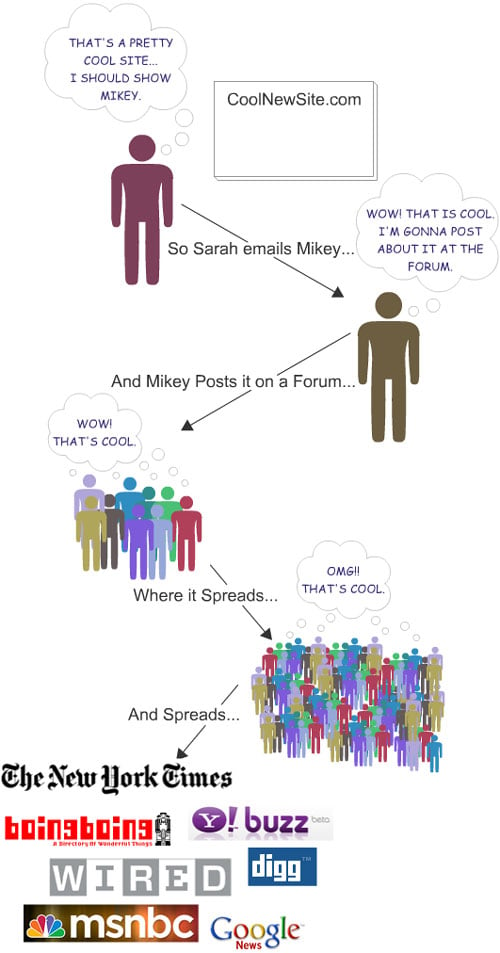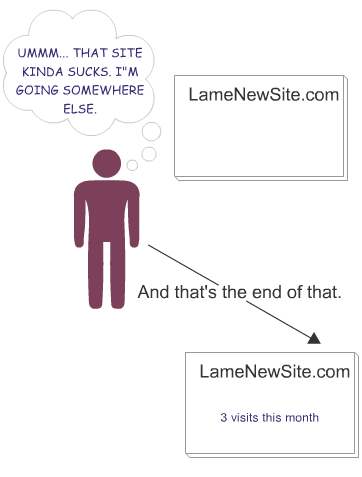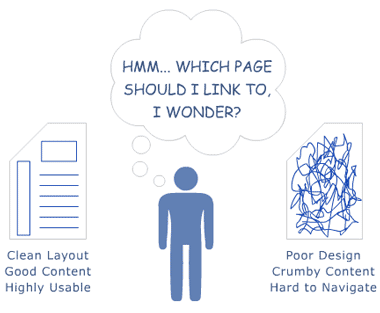
Rewriting the Beginner's Guide Part VI: How Usability, User Experience, and Content Affect Search Engine Rankings
The author's views are entirely their own (excluding the unlikely event of hypnosis) and may not always reflect the views of Moz.
I'm currently working on re-authoring and re-building the Beginner's Guide to Search Engine Optimization, section by section. You can read more about this project here.
How & Why "Great" Sites Rise to the Top of the Search Results
The search engines are in a constant quest to better their results by providing the "best" possible results. While "best" is subjective, the engines have a very good idea of the kinds of pages and sites that satisfy their searchers. Generally, these sites have several traits in common:
- Easy to use, navigate, and understand
- Provide direct, actionable information relevant to the query
- Professionally designed and accessible to modern browsers
- Deliver high quality, legitimate, credible content
Search engines can't "read" text, "view images, or "watch" video the same way a human being can, and thus they rely on meta information (I don't mean meta tags) about sites and pages in order to rank content. The engines discovered early on that the link structure of the web could serve as a proxy for votes and popularity - higher quality sites and information earned more links than their less useful, lower quality peers. Today, link analysis algorithms have advanced considerably, but these principles hold true.
As an example, watch how a great new site might achieve popularity on the web:

All of that positive attention and excitement around the content offered by the new site translates into a machine parseable (and algorithmically valuable) collection of links. The timing, source, anchor text, and number of links to the new site are all factored into its potential performance (i.e., ranking) for relevant queries at the engines.
Now imagine that site wasn't so great - let's say it's just an ordinary site without anything unique or impressive.

Low value websites don't have the power to attract interest and attention, and even given heavy marketing efforts, they tend to vanish into obscurity very quickly. No one wants to invest time and energy into a site that doesn't get visited, and the search engines are unlikely to ever rank the content on the site unless they find high quality, valuable links to indicate signs of value for their search audience.
The Impact of Usability and User Experience on the Search Engine Rankings
There are a limited number of variables that search engines can take into account directly, including keyword placement, links, and site structure. However, through linking patterns, the engines make a considerable number of assumptions about a given site. Usability and user experience are "second order" influences on search engine ranking success. They provide an indirect, but measurable benefit to a site's external popularity, which the engines can then interpret as a signal of higher quality. This is also called the "no one likes to link to a crummy site" phenomenon:

Crafting a thoughtful, empathetic user experience can ensure that your site is perceived positively by those who visit, encouraging sharing, bookmarking, return visits and links - signals that trickle down to the search engines and contribute to high rankings.
Crafting Content for Search Engine Success
Developing "great content" may be the most oft-repeated suggestion in the SEO world. Yet, despite its clichéd status, appealing, useful content is critical to search engine optimization. Every search performed at the engines comes with an intent - to find, learn, solve, buy, fix, treat, or understand. Search engines place web pages in their results in order to satisfy that intent in the best possible way, and crafting the most fulfilling, thorough content that addresses a searcher's needs provides an excellent chance to earn top rankings.
Search intent comes in a variety of flavors:
Navigational Queries

Navigational searches are performed with the intent of surfing directly to a specific website. In some cases, the user may not know the exact URL, and the search engine serves as the "White Pages," passing along the (hopefully) correct location.
Informational Queries

Informational searches involve a huge range of queries from finding out the local weather to getting a map & directions to finding the name of Tony Starks' military buddy from the Iron Man movie or checking on just how long that trip to Mars really takes. The common thread here is that the searches are primarily non-commercial and non-transaction-oriented in nature; the information itself is the goal, and no interaction beyond clicking and reading is required.
Commercial Investigation Queries

A commercial investigation search straddles the line between pure research and commercial intent. For example, sourcing potential partners for distribution of your new t-shirts in Albuquerque, determining what companies make laptop bags for sale in the United Kingdom, or researching the best brand of digital cameras for an upcoming purchase all qualify. They're not directly transactional, and may never result in an exchange of goods, services, or monies, but they're not purely informational either.
Transactional Queries

Transactional searches don't necessarily involve a credit card or wire transfer. Signing up for a free trial account at Cook's Illustrated, creating a Gmail account, paying a parking ticket, or finding the best local Mexican cuisine (in Seattle it's Carta de Oaxaca) are all transactional queries.
Fulfilling these intents is up to you - creativity, high quality writing, use of examples, images, and multimedia all help in crafting content that perfectly fits with a searcher's goals. Your reward is satisfied searchers who find their queries fulfilled and reward that positive experience through activity on your site or links to it.
Sorry for the long delay in finishing this project. With only a few more entries to go, I'm hopeful that I can complete the new version of the guide, including some serious editing, by the first of June. As always, your comments and input are greatly appreciated.

![How To Drive More Conversions With Fewer Clicks [MozCon 2025 Speaker Series]](https://moz.rankious.com/_moz/images/blog/banners/Mozcon2025_SpeakerBlogHeader_1180x400_RebeccaJackson_London.png?w=580&h=196&auto=compress%2Cformat&fit=crop&dm=1750097440&s=296c25041fd58804005c686dfd07b9d1)

![How To Launch, Grow, and Scale a Community That Supports Your Brand [MozCon 2025 Speaker Series]](https://moz.rankious.com/_moz/images/blog/banners/Mozcon2025_SpeakerBlogHeader_1180x400_Areej-abuali_London.png?w=580&h=196&auto=compress%2Cformat&fit=crop&dm=1747732165&s=d887ee9e0e183cbb2bf4d61c717c2aa3)
Comments
Please keep your comments TAGFEE by following the community etiquette
Comments are closed. Got a burning question? Head to our Q&A section to start a new conversation.